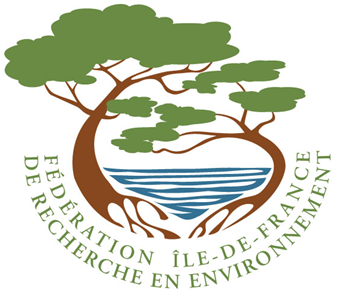The main goal of the ECOSYS research unit is to analyse in an integrated way the functioning of agroecosystems. To understand this functioning, the ECOSYS unit works with concepts of functional ecology and ecotoxicology, taking into account the fluxes of matter and energy as well as the functions of isolated organisms and the interaction with their environment.
The skills of tECOSYS unit gather those of two previous units, “Environnement et grandes cultures (Environment and Arable Crops) and “Physicochimie et écotoxicologie des sols d’agrosystèmes contaminés (Physical Chemistry and Ecotoxicology of the Soil of Contaminated Agrosystems)”
EcoSys aims ultimately to quantify and predict the agronomic, environmental and health performance of agrosystems in assessing adaptation strategies to global changes (climate, land use, and practices, pollution). EcoSys deals in an integrated manner with the functioning of agrosystems and their relationship with the environment.
EcoSys aims ultimately to quantify and predict the agronomic, environmental and health performance of agrosystems in assessing adaptation strategies to global changes (climate, land use, and practices, pollution).
The unit is organized in three scientific poles:
1. The Soil Science group has the objectives to:
- Optimize the valorisation of organic waste products in agriculture;
- Analyze the fate, dispersion and impacts of pesticides and other organic contaminants in agrosystems;
- Study the dynamics of organic matter in soils and carbon storage mechanisms at various levels of spatial organization with spatialized renderings;
- Take into account the ecosystem services rendered by soils in the assessment.
2. The Ecotoxicology group seeks to:
- Characterize exposure to contaminants through the study of the dynamics of micropollutants / soil interactions and the influence of landscape elements on the exposure of organisms to contaminants;
- Investigate the long-term effects of low doses of contaminants in soil mixtures;
- Develop and validate indicators of soil ecotoxicity;
- Analyze the contribution of ecotoxicology to multicriteria assessment of agro-ecosystem soils as well as the ecosystem services provided.
3. the Ecotoxicology Group aims to:
- Analyse and model the functioning of crops in interaction with biotic factors (pathogens, macrofauna, plurispecific association) and abiotics (low levels of nitrogen, water stress, thermal stress and oxidative stress);
- Determine the ecophysiological processes involved in the resilience of cutlery and associated functional traits;
- Quantify and predict the biosphere-atmosphere exchange of greenhouse gases, pollutants and particulates and the fate of nitrogen and pesticides at supra-plot scales.
- Evaluate the crop balance in an integrated way by considering production, costs and environmental impacts.
Analytical and experimental technical platforms
- Analytical and experimental technical platforms for environmental biochemical analysis, for organic pollutant analyzes, radio- and stable isotopes; greenhouses and air-conditioned rooms; analysis of plants in semi-controlled conditions; greenhouse gas and ammonia measurement service (ANAEE)
- Medium-term observation and research facilities (recycling of organic waste products and storage of organic matter - SOERE-PRO, storage of carbon and greenhouse gas emissions by crops - ICOS)
- Modeling, numerical computing and database management infrastructure
Some devices are grouped within the Observatory for the Environment, Territories and Agrosystems or contributors to national research infrastructures.
Teaching
EcoSys is involved:
- in training courses of (i) AgroParisTech SIAFEE (Agronomy, Forestry, Water and Environment Sciences and Engineering) and (ii) School BASE (Biodiversity, Agriculture and Food, Society and Environment)of University of Paris-Saclay. She is involved in numerous master's programs;
- in the coordination of the "Agrosciences, environnement, territories" (GSSE) courses on "Climate, land use, ecosystem services" (CLUES) and "Soil management and ecosystem services" (AETPF), in the international master "Management and treatment of water, soils and waste" and in the "deepening dominance" of AgroParisTech.
ECOSYS is affiliated with the Doctoral Schools of Ile-de-France Agriculture, Food, Biology, Environment, Health (ABIES) and Environmental Sciences.
Each year, ECOSYS provides training for about 20 doctoral students, 7 post-doctoral students and 50 short-term trainees.

